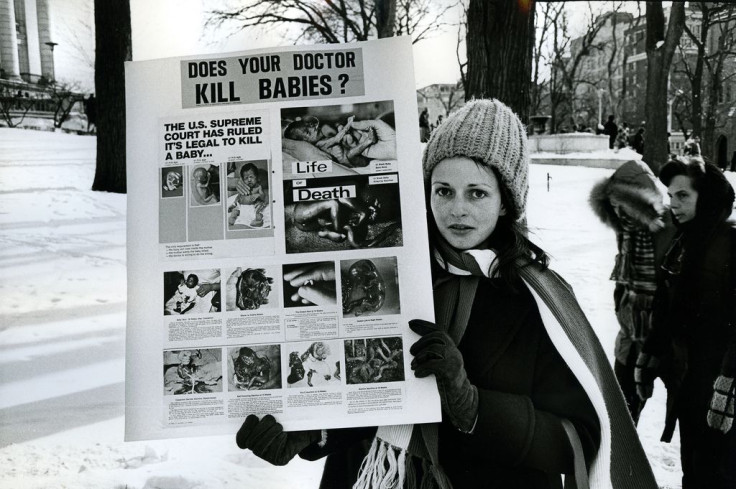Abortion Clinics Dealing With Surge In Harassment, Doctors 'Wanted For Killing'

Doctors and staff providing abortion services are facing a surge of threats and intimidation, according to a new survey from the Feminist Majority Foundation (FMF). This survey is “the first comprehensive nationwide survey of women’s health clinics since the summer of 2010.”
There are two major, alarming results: 1) anti-abortion violence continues to impact 19.7 percent of clinics nationwide; the overall percentage of targeted clinics rose from 26.6 percent to 51.9 percent of clinics, and 2) clinics are facing significantly higher and concentrated levels of harassment, including “wanted-style posters.” ThinkProgress reported these posters include sayings like, “Killers Among Us,” “Wanted for Killing,” and “Stop This Abortionist Now.”
In addition to posters, abortion clinics receive pamphlets targeting their doctors and staff, as well as find staff personal information and pictures leaked online.
“They are very much like the flyers used to target physicians in the 90s when they were being shot and killed. They profile their photograph, their name, their place of business’ address, and often their own private residence,” duVergne Gaines, the director of the National Clinic Access Project, told ThinkProgress. Gaines equated these actions to “putting a target on their back.”
As if this weren’t bad enough, FMF found an increase in anti-abortion extremism, including severe violence, vandalism, and break-ins. The authors wrote, “anti-abortion extremists strategically target a vulnerable minority of clinics, aiming to force them to close their doors before moving on to the next set of targets.” Last year, 60 abortion clinics closed, some mandated by anti-abortion law.
“I think the average legislator, and certainly the average citizen, has no idea what is really happening to the abortion providers who care for women’s comprehensive reproductive health. If they did, they would be truly horrified,” Gaines said.
Women visiting targeted clinics run into problems too. Not only are they made to feel bad or asahamed, researchers associate restricted access to abortion clinics with an increase in intimate partner violence, maternal death, and a decline in general women's health. One such example of shaming was captured by a British journalist Sunny Hundal. Perhaps surprisingly, a pregnant woman merely walking by the protest was the one to speak out against their actions.
Law enforcement building strong, positive relationships with clinics will be crucial in the fight against harassment. The personal safety of doctors and staff is at risk, so government tracking of incidences of violence can help law enforcement prosecute anti-abortion extremists. ThinkProgress reported when these types of cases make it to court, juries are often quick to crack down.
Yet, some doctors are afraid to speak out against their unsafe work conditions.
“There needs to be a zero tolerance policy for violence against abortion providers in this country,” Vicki Saporta, the president of the National Abortion Federation (NAF), previously told ThinkProgress. “Regardless of how people think about a woman’s right to choose, violence is never warranted, and people can’t try to justify acts of violence and terrorism.”
Source: duVergne Ganies, et al. 2014 National Clinic Violence Survey. Feminist Majority Foundation. 2014.



























